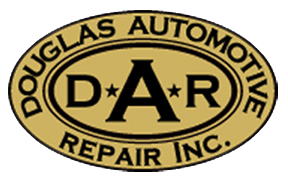Tires
Selecting Tires
“I need new tires. How do I know which tires to get?” Let’s look at selecting new tires in light of three factors: Function, Fit, and Value. Function: This gets at what your needs are for new tires: weather conditions, terrain, temperatures, etc. New family vehicles sold frequently come with all-season tires. They can be used all year long…
Read MoreBasic Tire Care Tips
Taking care of your vehicle’s tires is a simple way to get the most mileage out of them, as well as enduring reliability and avoiding unnecessary problems down the road. Get a quality tire gauge and get in the habit of checking your tire pressure each time you fill up your gas tank. At minimum,…
Read MoreWhat’s The Benefit Of Winter Tires?
This is a really good question. Most new vehicles come with all-season tires that work pretty well in the winter conditions many auto owners encounter. First, let’s talk about the things that dedicated winter tires do really well, touch on all-seasons, and then you should have some information to help you in your tire selection.…
Read MoreTire Pressure Monitoring System (TPMS)
Maintaining optimal tire pressure is an important component to vehicle safety and handling. Douglas Automotive Repair Inc is equipped to help you. We start with a systems test on all of your tire-pressure sensors to help in diagnosing the problems. This also involves: Checking your vehicle’s tire pressure Checking the sensor located in the tire…
Read MoreMy Tire Pressure Warning Light Came On Recently
My tire pressure warning light came on recently. What does that mean? It means that one or more of your tires has low air pressure. The dashboard warning light, which looks like a cross-section of a tire with some lines in it, comes on when the tire pressure is 20% below what the auto manufacturer…
Read MoreHow Do I Know When I Should Get My Tires Rotated and Balanced?
The interval for tire rotation could depend on a recommendation from either the tire manufacturer or the auto manufacturer. The interval is typically around 5,000 miles but could range from 3,000 to 8,000 miles. The background question for drivers is why do tires need to be rotated? Front tires wear differently than the rear tires…
Read MoreIf It Looks Like A Flat, Feels Like A Flat, And Sounds Like A Flat, Guess What…!
A flat tire shouldn’t be reason for panic. “In schools where drivers’ education isn’t available,” observes one educator, “tire changing ought to be included in home economics.” It is suggested that motorists who are unprepared to deal with a flat tire are faced not only with added expense and inconvenience; they also are more vulnerable…
Read MoreTire Replacement Can Be Overwhelming
New tire choices can be overwhelming. Suppose you have an SUV and are trying to decide between all-season tires or some that are also rated for off-highway. How much do you drive off-road? How important are looks? Let’s suppose you have a sporty car. You may like to run a high-performance summer tire when the weather’s good.…
Read MoreSpring Showers Bring Driving Safety Hazards
Worn out tires and windshield wiper blades are symptoms of neglected vehicle maintenance that put drivers and passengers at serious risk during the typically rainy months of spring. Thin tire treads create hazardous driving conditions when water builds up on the roadway. Deep tread accommodates accumulated water; thin tread does not. Thin tread causes the…
Read MoreTPMS Will Tell you if your Tires are Under Pressure
You’ve just purchased a new vehicle and already a dashboard warning light is on, but this is one you might not have seen before. There’s a good chance it’s the new warning light tied to the Tire Pressure Monitoring System (TPMS), which as of 2008, is standard on all new cars and light trucks. When…
Read More